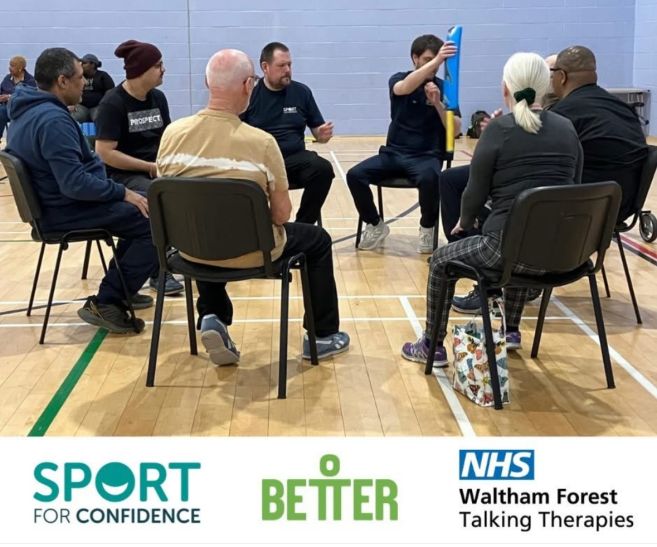Mental Health Awareness Week
This week to improve mental health in Waltham Forest the team from the appropriately named Waltham Forest Feel Good Centre went on outreach to Waltham Forest College to discuss the benefits of using a community orientated leisure centre, we arranged visits from North-East London Foundation’s Talk Therapy team for after a Healthwise fitness class and a Sport For Confidence session, and Duty Managers across the borough benefited from Samaritans sharing their knowledge during staff training.
May is a month when the significance of mental health is spotlighted during Mental Health Awareness Week from the 12th to 18th of May. This campaign for the United Kingdom was set up in 2001 by the Mental Health Foundation. Since its inception a lot of progress has been made with more and more every day conversations taking place and in some social circles seeking therapy or a mental health intervention is no longer seen as taboo. There is evidence to this improvement as only 22% of those who accessed mental health treatment saw the perceived stigma saw as the biggest barrier. However, there is still plenty of work to be done to improve the mental health of the public with research indicating that people of all ages are at risk. To put some population numbers on these statistics, roughly 14,000,000 people in England have reached out for mental health support in the last 5 years.
In 2023, the NHS England report, Mental Health of Children and Young People in England, found that roughly 1 in 5 young people had a potential mental health issue. The breakdown across youth age groups was 20.3% of eight to 16-year-olds had a probable mental health disorder, 23.3% for 17 to 19-year-olds, and with 20 to 25-year-olds it was 21.7%.
2024 statistics from the mental health organisation Mind indicate women are more likely than men to experience common mental health problems, with 20.7% of women and 13.2% of men affected. Approximately 1 in 4 adults in England will experience a mental health problem each year. However, 1 in 8 adults are receiving treatment for their conditions, therefore, half of people with poor mental health are benefiting from official support.
What can we do about this? NHS England guidance is that people understand what good mental health looks like by embracing the 5 Ways to Well-Being:
1. Connect with other people
2. Be physically active
3. Learn new skills
4. Give to others
5. Be present (mindfulness)
Life is a long journey, people will have natural dips, and it is recommended to maintain a strong reliable support network and keep to healthy habits. If you feel you are struggling further guidance and support recommendations are available in this link.
